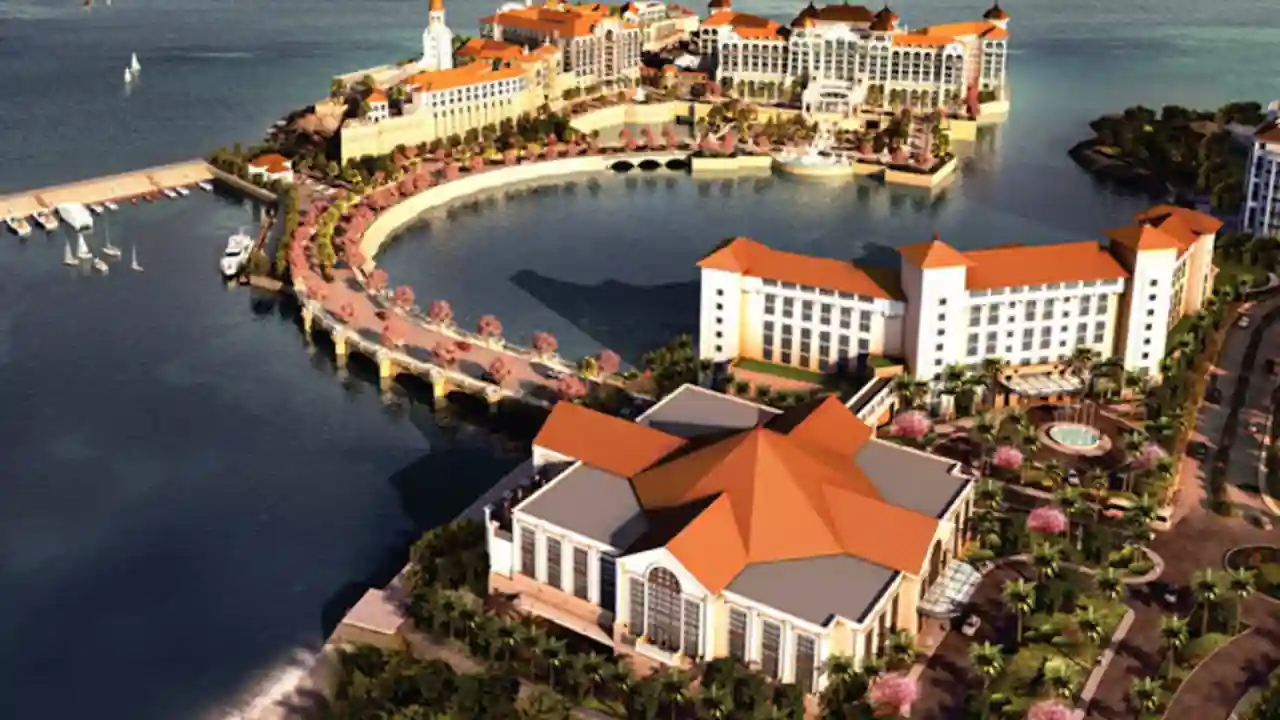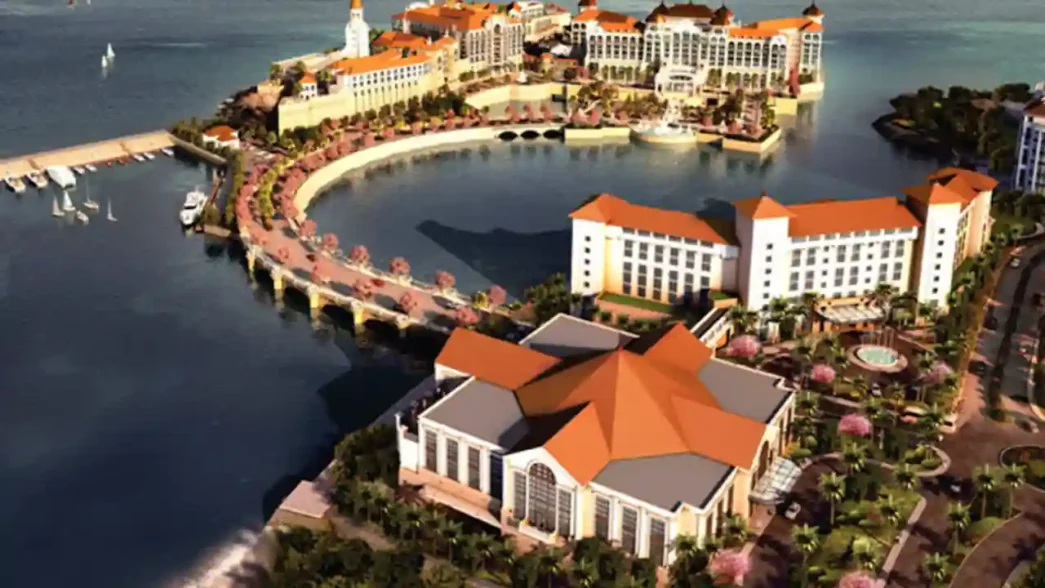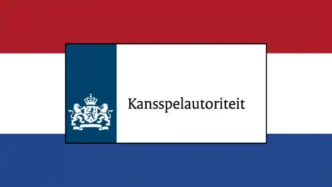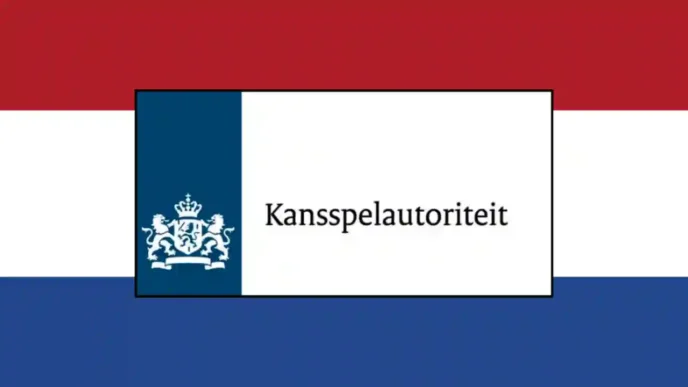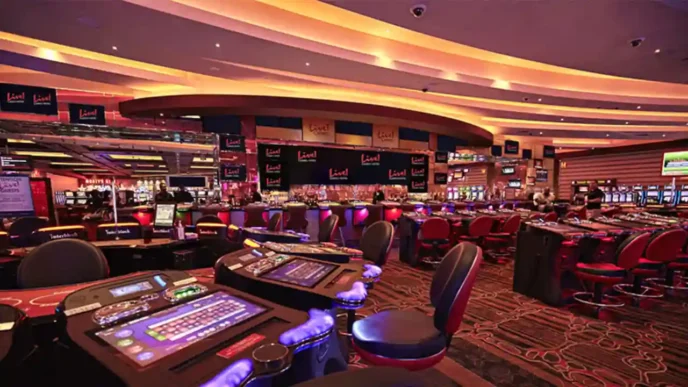Macau Legend Development Ltd., a key player in the global gaming and hospitality industry, finds itself in a contentious dispute with the Cabo Verde government over a terminated casino resort concession in Praia, the nation’s capital. The concession, initially granted to Macau Legend for the development of a high-profile integrated resort, has been revoked due to alleged contractual violations. This decision has ignited a heated conflict between the two parties, with significant legal and economic implications.
The Cabo Verde government alleges that Macau Legend breached the agreement through “flagrant and repeated” failures to adhere to the project’s stipulated timelines and investment obligations. The project, touted as a transformative development for Cabo Verde’s economy and tourism sector, has been hampered by years of delays and a lack of substantial progress. These setbacks have frustrated local authorities, who envisioned the casino resort as a beacon for economic revitalization and a magnet for high-end tourism.
In response, Macau Legend has rejected the allegations and expressed its intention to challenge the government’s claims through legal avenues in Cabo Verde. The company asserts that it has made earnest efforts to advance the resort, citing unforeseen challenges and external factors as primary reasons for the delays. While maintaining its commitment to the project’s original vision, Macau Legend has sought legal representation to defend its rights and investments in the venture.
The proposed resort was initially conceived as a luxurious destination, featuring a world-class casino, upscale hotels, a modern conference center, and a marina designed to attract affluent tourists. However, despite its ambitious blueprint, the project has faced numerous roadblocks, including financial constraints, bureaucratic challenges, and shifting geopolitical conditions. These hurdles have compounded over time, leading to stalled construction and growing tensions between the developer and the government.
The Cabo Verde government, in its decision to reclaim the project, aims to reassess its future and explore alternative options to revive the stalled development. Officials are keen on salvaging the potential economic benefits of the site, whether through new partnerships or a restructured approach. However, the ongoing legal battle is expected to complicate matters, potentially delaying any significant progress.
This dispute casts a spotlight on the complexities of international development projects, especially those involving substantial private investment in emerging markets. It underscores the critical need for clear communication, transparent agreements, and collaborative efforts between governments and investors. For Cabo Verde, the stakes are high as the project was positioned as a cornerstone of its broader economic and tourism strategy. For Macau Legend, the conflict represents a critical challenge to its reputation and business interests in a region with growing opportunities for the gaming and hospitality sector.
The unfolding situation raises broader questions about accountability and risk in large-scale development ventures. While Cabo Verde seeks to protect its economic aspirations and regain control of a key project, Macau Legend is determined to safeguard its investments and counter allegations of misconduct. The eventual resolution of this conflict will likely have far-reaching implications for both parties, shaping future investor-government relationships in similar projects.
As the legal proceedings progress, the outcome will serve as a significant precedent in the international development landscape. It will highlight the importance of aligning investor and governmental goals, ensuring that both parties work collaboratively toward achieving sustainable progress. Meanwhile, the halted project stands as a stark reminder of the challenges inherent in ambitious, cross-border developments and the delicate balance required to see them through to completion.
Macau Legend Development Ltd., a key player in the global gaming and hospitality industry, finds itself in a contentious dispute with the Cabo Verde government over a terminated casino resort concession in Praia, the nation’s capital. The concession, initially granted to Macau Legend for the development of a high-profile integrated resort, has been revoked due to alleged contractual violations. This decision has ignited a heated conflict between the two parties, with significant legal and economic implications.
The Cabo Verde government alleges that Macau Legend breached the agreement through “flagrant and repeated” failures to adhere to the project’s stipulated timelines and investment obligations. The project, touted as a transformative development for Cabo Verde’s economy and tourism sector, has been hampered by years of delays and a lack of substantial progress. These setbacks have frustrated local authorities, who envisioned the casino resort as a beacon for economic revitalization and a magnet for high-end tourism.
In response, Macau Legend has rejected the allegations and expressed its intention to challenge the government’s claims through legal avenues in Cabo Verde. The company asserts that it has made earnest efforts to advance the resort, citing unforeseen challenges and external factors as primary reasons for the delays. While maintaining its commitment to the project’s original vision, Macau Legend has sought legal representation to defend its rights and investments in the venture.
The proposed resort was initially conceived as a luxurious destination, featuring a world-class casino, upscale hotels, a modern conference center, and a marina designed to attract affluent tourists. However, despite its ambitious blueprint, the project has faced numerous roadblocks, including financial constraints, bureaucratic challenges, and shifting geopolitical conditions. These hurdles have compounded over time, leading to stalled construction and growing tensions between the developer and the government.
The Cabo Verde government, in its decision to reclaim the project, aims to reassess its future and explore alternative options to revive the stalled development. Officials are keen on salvaging the potential economic benefits of the site, whether through new partnerships or a restructured approach. However, the ongoing legal battle is expected to complicate matters, potentially delaying any significant progress.
This dispute casts a spotlight on the complexities of international development projects, especially those involving substantial private investment in emerging markets. It underscores the critical need for clear communication, transparent agreements, and collaborative efforts between governments and investors. For Cabo Verde, the stakes are high as the project was positioned as a cornerstone of its broader economic and tourism strategy. For Macau Legend, the conflict represents a critical challenge to its reputation and business interests in a region with growing opportunities for the gaming and hospitality sector.
The unfolding situation raises broader questions about accountability and risk in large-scale development ventures. While Cabo Verde seeks to protect its economic aspirations and regain control of a key project, Macau Legend is determined to safeguard its investments and counter allegations of misconduct. The eventual resolution of this conflict will likely have far-reaching implications for both parties, shaping future investor-government relationships in similar projects.
As the legal proceedings progress, the outcome will serve as a significant precedent in the international development landscape. It will highlight the importance of aligning investor and governmental goals, ensuring that both parties work collaboratively toward achieving sustainable progress. Meanwhile, the halted project stands as a stark reminder of the challenges inherent in ambitious, cross-border developments and the delicate balance required to see them through to completion.
Related posts:
Blue High House Fined €1.1M for Violating Dutch Gambling Laws
